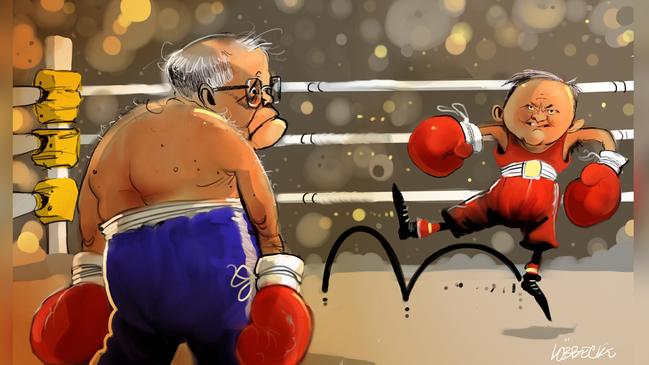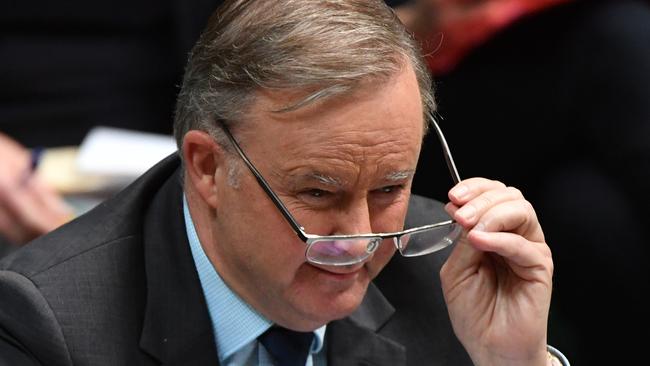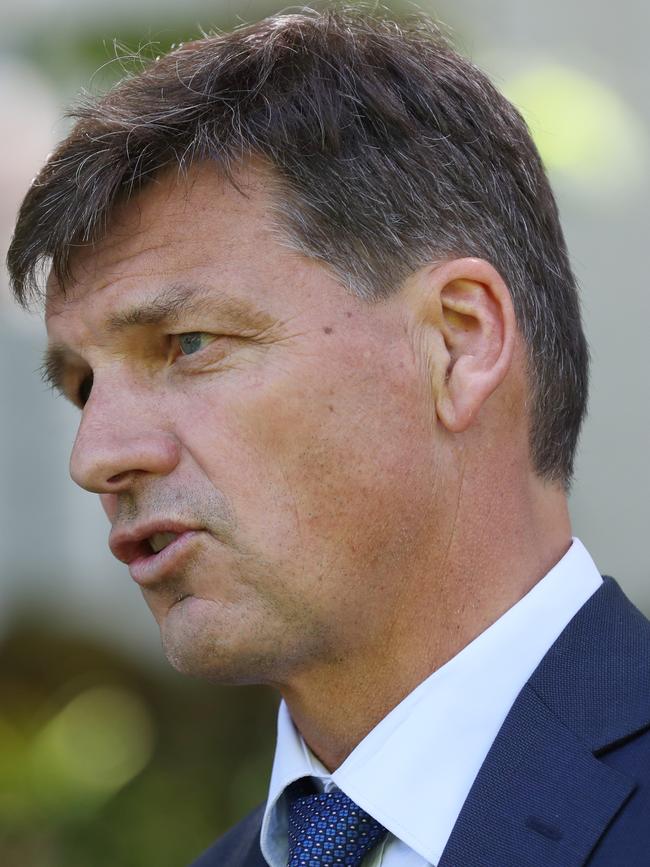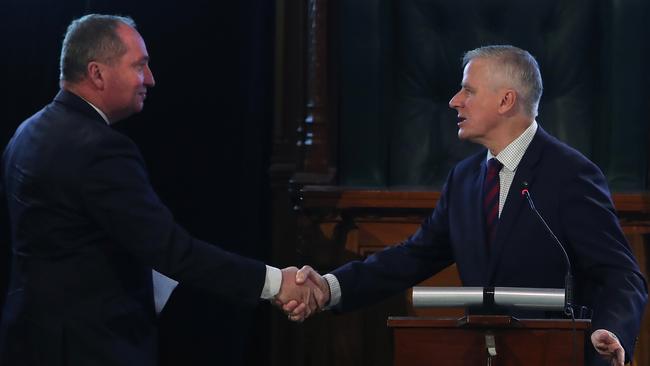Anthony Albanese sizes up his enemies — within and without

On Friday week, the day the review is formally presented to the party’s national executive, the Opposition Leader will front up to the National Press Club, giving the media the opportunity to finish the ritual disembowelling begun by some of his own colleagues.
There is no great mystery behind the defeat. As observed by this columnist a while ago, the deadly combination of a dud leader, dud policies and a dud campaign rendered Labor incapable of beating a government which had fielded three prime ministers in three years.
This is the nub of the review’s findings, which will be expressed by Jay Weatherill and Craig Emerson, although much more politely and with thousands more words.
'Even when its policy settings are right, the internal culture of the Labor Party and the values it projects are at odds with how many Australians feel. A Party that defines itself primarily as ‘progressive’ will no longer have a broad cultural base ..' https://t.co/xrnPVEKc0Z
— John Curtin Research Centre (@curtin_rc) October 30, 2019
Party members are owed an unvarnished account of what went wrong for Labor and who was responsible. Too many policies, too many taxes with too many losers, an unpopular leader who sought to divide and rule, backed by a campaign which failed to recognise a more nimble, more cunning opponent fronting a well-funded, sharper organisation, all combined to deliver despair, humiliation and a crippling identity crisis.
A popular, or even respected leader might have been able to overcome the other two deficiencies. Or an unpopular leader with sound policies, or even no policies given the dysfunction and divisions of the Coalition, and a hard-hitting campaign probably would have made it across the line.
All three duds together guaranteed a spectacular demise.

The question is whether Albanese has the skills to rebuild from the rubble. Albanese is not popular. Nor is he that well known outside Sydney. The overt and covert rumbles, which many believe spring from his predecessor and which Kim Carr expressed in The Australian on Tuesday, pointing out that in effect everyone was culpable because no one objected to Bill Shorten’s course, will intensify if Albanese is still lagging by the middle of next year.
At least he appreciates what needs to be done. Albanese has three main tasks, all of them extremely difficult, all requiring profound changes in culture and a high level of self-belief. He has to change the policy focus to drag the party closer to the centre, he has to take some skin off Scott Morrison and he has to ensure the party machinery is in fighting shape.
On Tuesday he formally called an end to class warfare as he acknowledged the value of mining, the “c” word (coal) and business to the economy and jobs. Nothing exceptional there except it was a Labor leader finally accepting that it had to be said. Nor will it hurt him in the wider community, as he fights for jobs, to be seen to be standing up for workers and against the unions if need be.
We can be the land of cheap and endless energy – energy that could power generations of jobs. pic.twitter.com/uCJGtkrEL5
— Anthony Albanese (@AlboMP) October 29, 2019
READ MORE: Paul Kelly — Labor must become a broad church | Claire O’Neil — ‘As progressives, we got it wrong’ | Dave Noonan — ‘Whose side are you on, Labor?’
Albanese has tried to lay down other important markers, attacking the integrity of a government whose motto threatens to be not whatever it takes, but whatever you can get away with.
How else to explain the behaviour of Angus Taylor? Taylor is a cabinet minister who put his name to false figures in a premeditated strike against a political opponent. What is truly shameful is that, when he was caught, Taylor did not appear even remotely embarrassed by his misadventure.

People not only have a right to know, they have a right to know the truth. If their decision-makers mislead them, they are entitled to a full explanation, without delay or artful dodges. They should also expect, nay demand, that those responsible be punished.
Taylor promised an apology to Sydney’s Lord Mayor Clover Moore late last Friday. That was nowhere near enough. In parliament last week he should have also immediately apologised to Sydney newspaper The Daily Telegraph, its readers and to the rest of the country for putting false information into the public arena on a serious issue.
A government which hunts down journalists for doing their jobs then protects its own when they lie or misrepresent or misbehave deserves not to be trusted or respected.
Albanese is working on two more speeches for this year, one on “democracy”, which will also encompass press freedom. Measures to restore some honour to politics and parliament again should also form a major part of that and of his remaking. So should some new, plain shirts. Seriously. It’s important to look and sound the part because things can change very quickly in politics.
After losing the unlosable election in 1993, the Liberals dumped John Hewson, then dumped Alexander Downer before settling — again — on John Howard as a safe pair of hands.
Howard’s small-target strategy combined with a solid campaign run by Andrew Robb against an ageing government succeeded in delivering victory in 1996. After the 2004 election when he smashed Mark Latham, everyone said Howard was set for another two terms. He was gone after one.

There is no doubt the tensions within the Nationals will explode. The only doubt is how much damage the Prime Minister will sustain in the process and in the aftermath, depending on who emerges as Nationals leader.
There are several potential candidates — Barnaby Joyce, Matt Canavan, David Littleproud. Right now none of them has the numbers, which means Michael McCormack survives, along with the destabilising contest.
The leaking of the f-bomb-studded row between Morrison and Canavan over the Prime Minister’s supposed tardiness on a feasibility study for a coal-fired power station in Canavan’s home state of Queensland to Brisbane’s The Courier-Mail newspaper was part of the “me Tarzan, you Jane” signalling to backbenchers of who is best equipped to stand up to the Liberals. It is an unstable and unhappy environment.
The leadership tensions that have plagued Australian politics for more than a decade are a long way from over.



When Anthony Albanese rose on Tuesday afternoon in Perth to give the first of his half-dozen or so repositioning speeches, marking the beginning of a painful, cathartic process for Labor which has the potential to end in tears, he was already well informed of the contents of the review into Labor’s election loss in May.